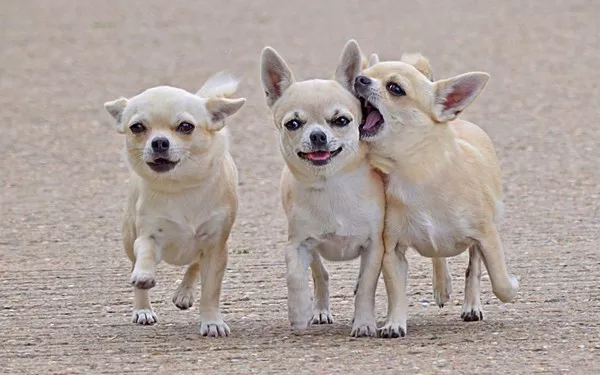Introduction
As conscientious guardians of our furry companions, the quest for providing the optimal diet for Chihuahuas involves navigating the intricacies of canine nutrition. Among the myriad dietary considerations, a common question surfaces: Why can’t Chihuahuas eat corn? In this exploration, we delve into the nutritional landscape for these diminutive dogs, unraveling the complexities that surround the inclusion of corn in their diets and understanding the specific reasons behind the cautionary stance.
Understanding Chihuahua Diets
Before we delve into the question of why Chihuahuas can’t eat corn, it’s essential to grasp the distinctive dietary needs of these tiny canines. Chihuahuas, known for their petite stature and lively personalities, require a carefully balanced diet to support their overall health, energy levels, and growth. Their diminutive size accentuates the need for a diet tailored to their unique nutritional requirements, prompting a closer examination of specific foods, including corn, that may impact their well-being.
The Corn Debate
Corn, a staple in human diets and pet food formulations, is a topic of debate when it comes to canine nutrition, particularly for Chihuahuas. While corn is a common ingredient in many commercial dog foods, concerns have been raised about its suitability for certain breeds, including Chihuahuas. The core question emerges: Why is there caution surrounding the inclusion of corn in Chihuahua diets, and what potential risks or benefits does it bring?
Why Can’t Chihuahuas Eat Corn?
Digestibility Concerns: One of the primary reasons Chihuahuas are advised against consuming corn is related to digestibility. The digestive systems of these small dogs may struggle to break down and absorb the nutrients from corn efficiently. Undigested corn may lead to gastrointestinal distress, including issues such as bloating, gas, and potential discomfort for Chihuahuas.
Limited Nutritional Value: While corn does contain some nutritional elements, it may not offer the optimal balance of essential nutrients required for Chihuahuas. These tiny dogs have specific dietary needs that may be better met by high-quality protein sources, healthy fats, and a variety of canine-friendly fruits and vegetables. The limited nutritional value of corn in comparison to other options contributes to the cautious approach.
Potential Allergenicity: Corn is recognized as one of the common allergens in dog food. Chihuahuas, like other breeds, may exhibit sensitivities or allergies to corn, leading to allergic reactions. Symptoms of corn allergies in dogs can range from skin irritations and itching to digestive issues. Given the potential for allergic reactions, avoiding corn is often recommended to prevent discomfort for Chihuahuas.
Risk of Obesity: Corn is a starchy carbohydrate that contributes to the caloric content of a diet. Excessive consumption of high-carbohydrate foods, including corn, can contribute to weight gain and obesity in dogs. Chihuahuas, being a small breed, are particularly susceptible to weight-related issues, making it crucial to prioritize nutrient-dense foods over those that may contribute to unnecessary caloric intake.
Association with Filler Ingredients: In some lower-quality commercial dog foods, corn may be used as a filler ingredient. Fillers are ingredients that add bulk to the food but may not offer significant nutritional value. For Chihuahuas, whose diets should be nutrient-dense to meet their unique needs, foods with excessive filler ingredients, including corn, are less desirable.
Safe and Nutritious Alternatives for Chihuahuas
High-Quality Protein Sources: Prioritize high-quality protein sources in Chihuahua diets. Lean meats such as chicken, turkey, and beef, along with protein-rich dog food formulations, provide the essential amino acids necessary for their growth and overall well-being.
Canine-Friendly Fruits and Vegetables: Introduce a variety of canine-friendly fruits and vegetables into Chihuahua diets. Blueberries, carrots, sweet potatoes, and green beans are examples of nutrient-dense options that offer vitamins, minerals, and antioxidants without the potential drawbacks associated with corn.
Consultation with a Veterinarian: Before making any significant changes to a Chihuahua’s diet, consult with a veterinarian. Veterinary professionals can offer personalized guidance based on the specific health, dietary requirements, and potential sensitivities of individual Chihuahuas.
Homemade Meals: Consider preparing homemade meals for Chihuahuas, ensuring they are well-balanced and tailored to their unique nutritional needs. Homemade meals allow pet owners to have better control over the ingredients, avoiding potential allergens and fillers that may be present in commercial dog foods.
Conclusion
In the intricate tapestry of Chihuahua nutrition, the question of whether they can eat corn revolves around the unique characteristics of these small and spirited dogs. While corn is not inherently toxic to Chihuahuas, the potential digestibility concerns, limited nutritional value, allergenicity, and association with filler ingredients prompt a cautious approach. Prioritizing their well-being involves opting for nutrient-dense alternatives that align with their specific dietary needs. As guardians of these cherished companions, the commitment to making informed and thoughtful dietary choices contributes to fostering a healthy, happy, and thriving life for Chihuahuas. In the realm of canine nutrition, the axiom “you are what you eat” resonates, emphasizing the significance of thoughtful and intentional choices in shaping the well-being of our beloved Chihuahuas.


